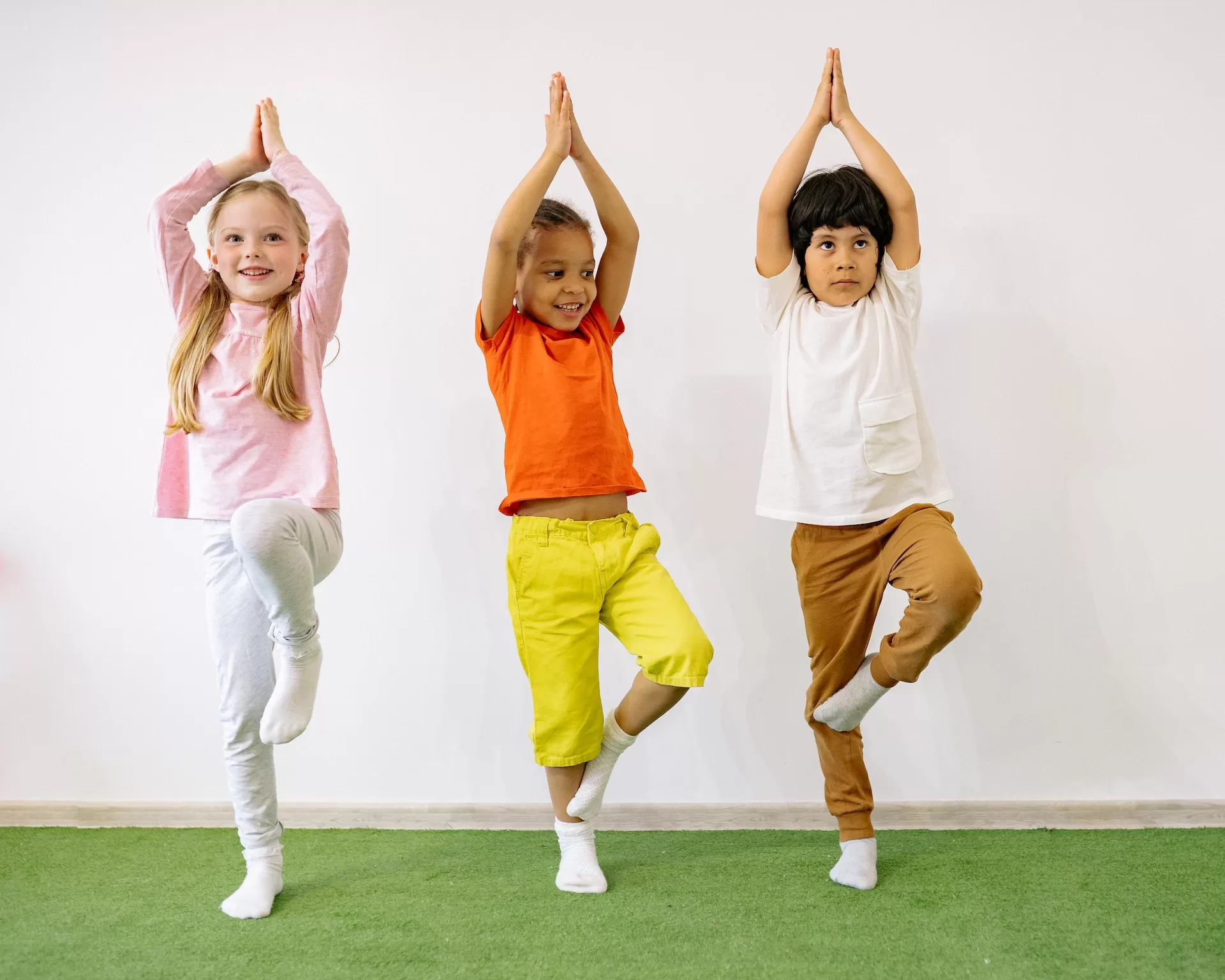Introducing Yoga To Young Minds
In an age of infinite distractions, it’s no wonder that parents are concerned about their child’s health, mental wellbeing, and overall development. One potential approach is to introduce them to yoga.
Far from the stereotype of grown adults sitting in a lotus position for hours, yoga can provide an array of benefits for our smallest people. This guide is an introduction to the nuances of introducing yoga to children and an exploration of the impact this practice can have.
What Is Yoga?
Yoga is an ancient Indian practice that utilizes breathing techniques, postures, meditation, and relaxation to improve the overall physical, mental, and spiritual health of its participants.
Yoga is a form of physical and mental exercise, which can be adapted to suit any individual’s need. Many forms of yoga may be used to encourage physical activity, mental clarity, and emotional maturity in children.
Why Should Children Practice Yoga?
Yoga is beneficial to children of all ages so the sooner they begin to practice it, the greater the long-term developmental benefits can be.
The combination of physical and mental movements encourages their brains and bodies to form new neural pathways and gives them a healthy, non-competitive environment to explore.
Yoga has many physical benefits for children as well. By increasing flexibility and range of motion, it strengthens muscles and bones, resulting in fewer injuries, improved posture and balance, and increased overall physical strength.
It also improves circulation and digestion and enhances the functions of the internal organs.
Mental, emotional, and spiritual benefits are all targeted when practicing yoga and are especially important for children.
The strength and flexibility that children gain when practicing yoga can improve self-esteem, enabling them to trust in their own abilities. It can also enhance cognitive processes, thereby encouraging problem-solving and creativity.
By teaching children to be in the moment, yoga can help them learn how to control their emotions and be present rather than dwelling on the past or worrying about the future.
Finally, yoga can deepen the spiritual awareness and practice of children. Studies have shown that yoga can reduce physical and mental stress in children, improve concentration and focus, and provide them with healthier ways to express their emotions.
Choosing The Right Yoga For Your Child
When thinking about introducing yoga to their life, it is important to consider what type of yoga practice is most appropriate for their age. Hatha yoga classes involve basic postures and mindful breathing practices, making it perfect for children of all ages.
Power yoga is more intensive and focuses more on building strength, balance, and focus and is suitable for older children.
Ashtanga is another option for older children, however, it does require more coordination and focus, which may not be suitable for all.
Picking the right yoga teacher for your child can be just as important as class type. Look for instructors who are educated in dealing with children and have relevant qualifications. Also take the time to observe the class in progress to ensure there’s an appropriate level of discipline and respect from students and instructor alike.
Finding The Right Yoga Environment
For some children, practicing yoga in a large group class can be intimidating. Consider looking for a class that has smaller groups or go to a studio with a proven track record of working with children.
If your child is more comfortable at home, there are now many online classes available as well as DVDs, apps, and books that can help introduce your child to the practice of yoga.
Using Props In Yoga For Children
Yoga props are a great way to make yoga more accessible to children. Props are items such as blocks, straps, bolsters, and blankets that can help children find balance and comfort in their practice.
They can also be used to modify postures that may be too challenging or even help to keep children safe when exploring more difficult poses.
Encouraging Your Child To Try Yoga
Help your child try yoga by giving them encouragement and positive reinforcement when they practice. Explain the benefits of yoga and demonstrate the postures with them to build enthusiasm.
If your child is reluctant to try it, let them participate at their own pace and don’t push them. Let them lead the way in their practice to find a place that they can enjoy and explore.
Conclusion
Yoga can be a beneficial tool for healthy physical, mental, and spiritual development in children. From increased focus and concentration to enhanced flexibility and strength, yoga provides an excellent foundation for children’s growth. With the right approach and a supportive environment, yoga can become an invaluable part of your child’s journey.

